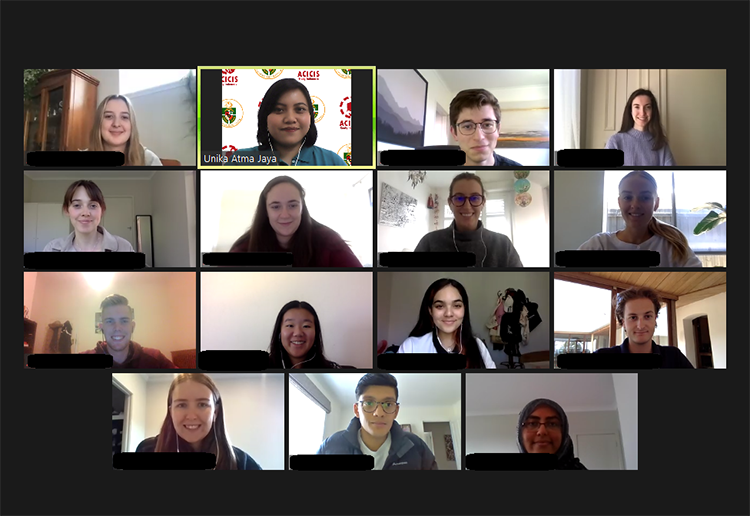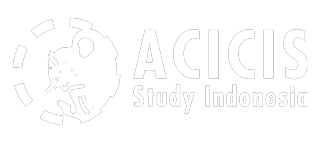By Vishrut Pande* (Virtual LPP 2021)
Monash University
It is an honour to be able to share my experience in the Law Professional Practicum with everyone, and I have thoroughly enjoyed learning about my peers’ experiences in different programs.
When beginning this program, I was nervous. This stemmed from being uncertain of my ability to work professionally in the unique Indonesian culture; grappling language and cultural barriers, along with having vastly different legal systems. However, at all phases of the program, the nurturing and supportive efforts of the APOs and host mentors, the inspiring speakers, and the engaging academic tasks nurtured my passion for Indonesia and fuelled my desire to consider further involvement with the country.
I would like to briefly recap three aspects of my LPP journey: the seminars, field trips, and my placement and finish with some concluding remarks.
Seminars
The law program had four main seminars comprising of: (1) an introduction to Indonesian legal history, (2) Customary law and informal regulation, (3) Freedom of press, and (4) The legal profession, workplace, and legal research skills. The passion and experience of each presenter inspired me to improve my understanding of Indonesian law and helped me develop the essential skills required to succeed in my placement. I even found an exciting new career pathway in International Arbitration.
Field Trips
We were also privileged to go on two innovative virtual field trips: the first to the Ministry of Foreign Affairs, and the second to the Constitutional Court of Indonesia. The field trip to the Constitutional Court helped bring to life Constitutional Court judgements and decrees, that I would later refer to in my placement work.
Placement
I conducted my placement at Soengkar and Partners – a boutique commercial law-firm in Jakarta. As part of this placement, my fellow intern and I undertook a series of intensive legal research tasks on diverse areas of law in jurisdictions across the world ranging from Indonesia to the Cayman Islands. Best likened to a ‘trial by fire’ in the busy Indonesian workplace, this research was interesting but also quite gruelling; assignments were required to be completed on tight deadlines to help accommodate the needs of clients and were often on areas of law which I have not yet studied in my degree.
Nevertheless, having completed each task, I would take pride in stretching myself outside my comfort zone – feeling a little closer to the legal scene in Indonesia.
Once the work was done, my mentors, fellow intern and I would meet at the end of the week for an ‘open discussion’ meeting. Often beginning with serious discussion about our tasks, or complex legal questions, the meetings would without fail, end with some light-hearted banter – encapsulating Indonesian hospitality.
With Bahasa Indonesia being influenced by a smorgasbord of languages, I felt a sense of belonging when learning familiar sounding words.
Particularly, I was pleasantly surprised that many Bahasa words are derived from Sanskrit- the same root as my mother tongues Hindi and Gujarati. In fact, the very word ‘Bahasa’ comes from the Sanskrit word ‘Bhasha’- meaning ‘language’. This semblance to the languages I speak at home continued as I studied and experienced Indonesian law; the five founding pillars of the legal system which I saw almost always mentioned at the start of legislation are called Pancasila: originally derived from Sanskrit: “pañca” (“five”) and “sīla” (“principles”).
Knowing that there is a small piece of my heritage at the roots of the Indonesian legal system made me realise that we all are closer to Indonesia than we think; be it through similarities in language or culture, or even our geographical proximity as Asia-Pacific neighbours.
I am excited to continue this journey and hope that the rest of us do so too.
Terima Kasih Banyak!

